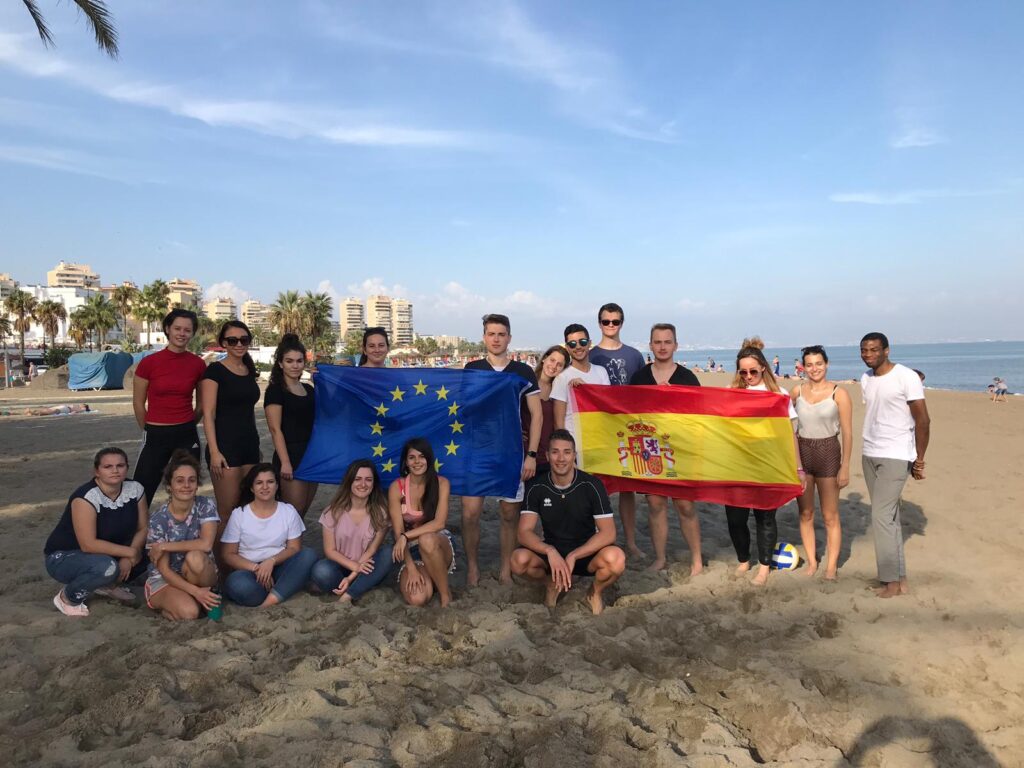The changes in the world economy and technologies together with globalisation and society development strongly influence on a labour market. There is no anymore “job for life”, the industrial and physical work is becoming less needed giving the way to creativity-focused professions and due to high competition in business sector and economic problems employers are looking for already educated, experienced, flexible and creative employees. In turn it influences on the youth unemployment. At this stage entrepreneurship and in particular social entrepreneurship can become an effective way to confront the problem. It is how young people can get needed experience, become responsible and create their own jobs. NGOs can help young people to develop employability skills and involve them into entrepreneurship. At the same time NGOs also can benefit a lot from learning social entrepreneurship as they also face with the different problems and cannot be sustainable. But there are not many NGOs which are competitive enough in the issue.
The training course “Social entrepreneurship 4 All” aimed to develop youth workers skills on creativity and social entrepreneurship in order to make NGOs sustainable and involve young people in the process of overcoming the youth unemployment through social entrepreneurship.
The specific objectives of the project for youth workers were:
-To introduce participants to the social business model and the values that underpin this type of enterprise
-To acquire the appropriate skills which would enable the youth workers in order to support young people to build social enterprises that address the challenges of our time.
-To promote, within specific well-designed practices, the development of innovative ideas concerning sociological fields.
-To share national resources and inform about European ones (social entrepreneurship education and learning, access to different types of funding, partnerships, networks etc.) useful for social enterprise creation and sustainability;
– To explore the concept of sustainable development and its dimensions (economic, environmental, social – which are in line with the Europe 2020 priorities for smart, sustainable and inclusive growth)
-To create strong partnerships, capable to develop future projects concerning social entrepreneurship and beyond.
-To inspire participants by bringing role models (entrepreneurship success stories).
-To give youth workers the tools and information on how Erasmus+ funding can support social innovation and entrepreneurship projects
The project methodology was based on non-formal education (NFE) methods, valorising the knowledge and experiences of the participants. Methods included inputs, working groups, exercises, debriefing, reflection groups and common session to initiate the day with a strong energetic element.
Our impact cascade strategy:
-The Project was directly aimed to youth workers/youth leaders/volunteers in the field of social entrepreneurship. They benefited from educational content to improve their entrepreneurship skills regarding to youth empowerment and capacity to resolve societal problems.
-The youth workers benefited in terms of motivation, commitment, tools and methods. They had greater satisfaction in their volunteer commitment and perform better quality of youth work. Their level of skills improved and these skills were also transferable to other youth workers engagements or even in the job market.
-Youth workers and other organizations staff involved in learning activities benefited from improved youth work: more committed and motivated youth workers, more consistency between regardless of youth workers involved in learning activities. This results in creating more impact in the awareness raising activities, improve learning impact, extended learning opportunities in the field of youth and eventually more sustainable results and impact of the activities.
-Organizations involved benefited from improve processes, results and projects, therefore optimize available resources for new activities in the social field. The project aimed to contribute to sustainability and capacity building of the organization.
The direct impact of the training course was an increase in capacity and skills of the youth workers and project partners to develop qualitative educational projects in the field of youth social entrepreneurship which better meet the needs of youth with fewer opportunities. Next to this, the model for the dissemination plan was multiplied amongst other youth work organisations, which supports the overall qualitative development of Erasmus+.

